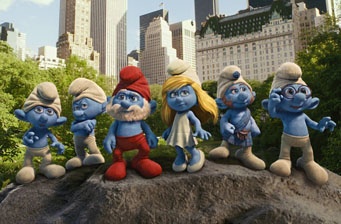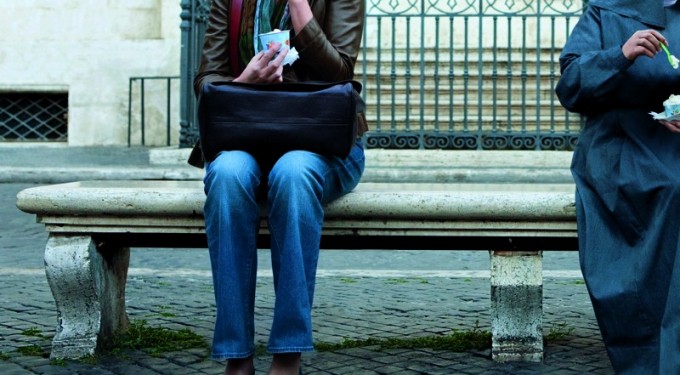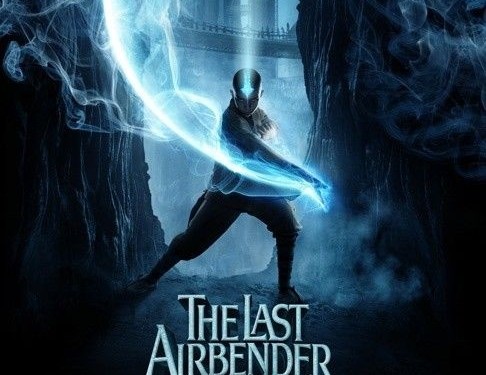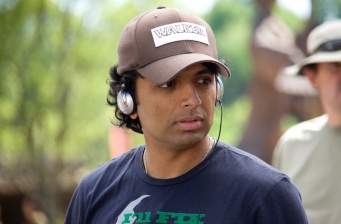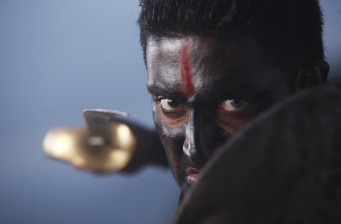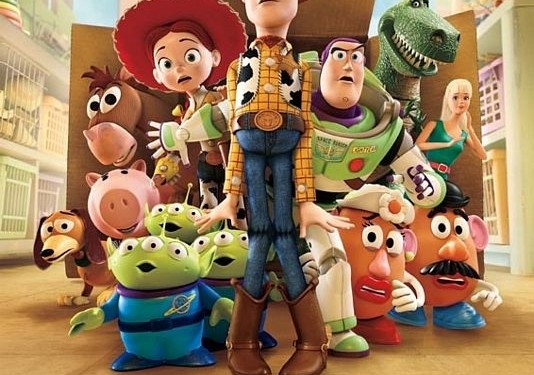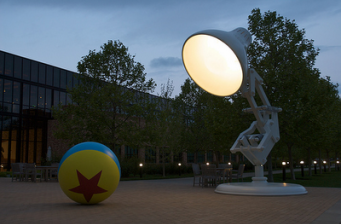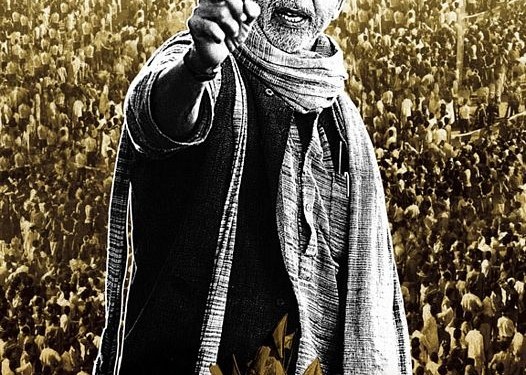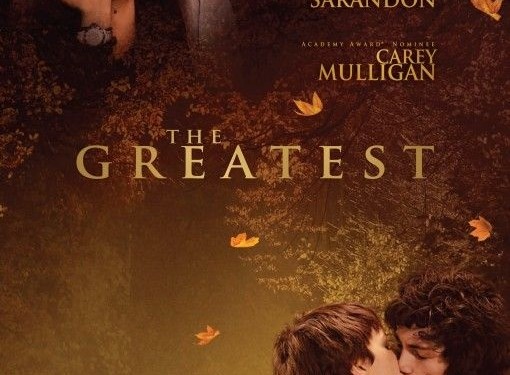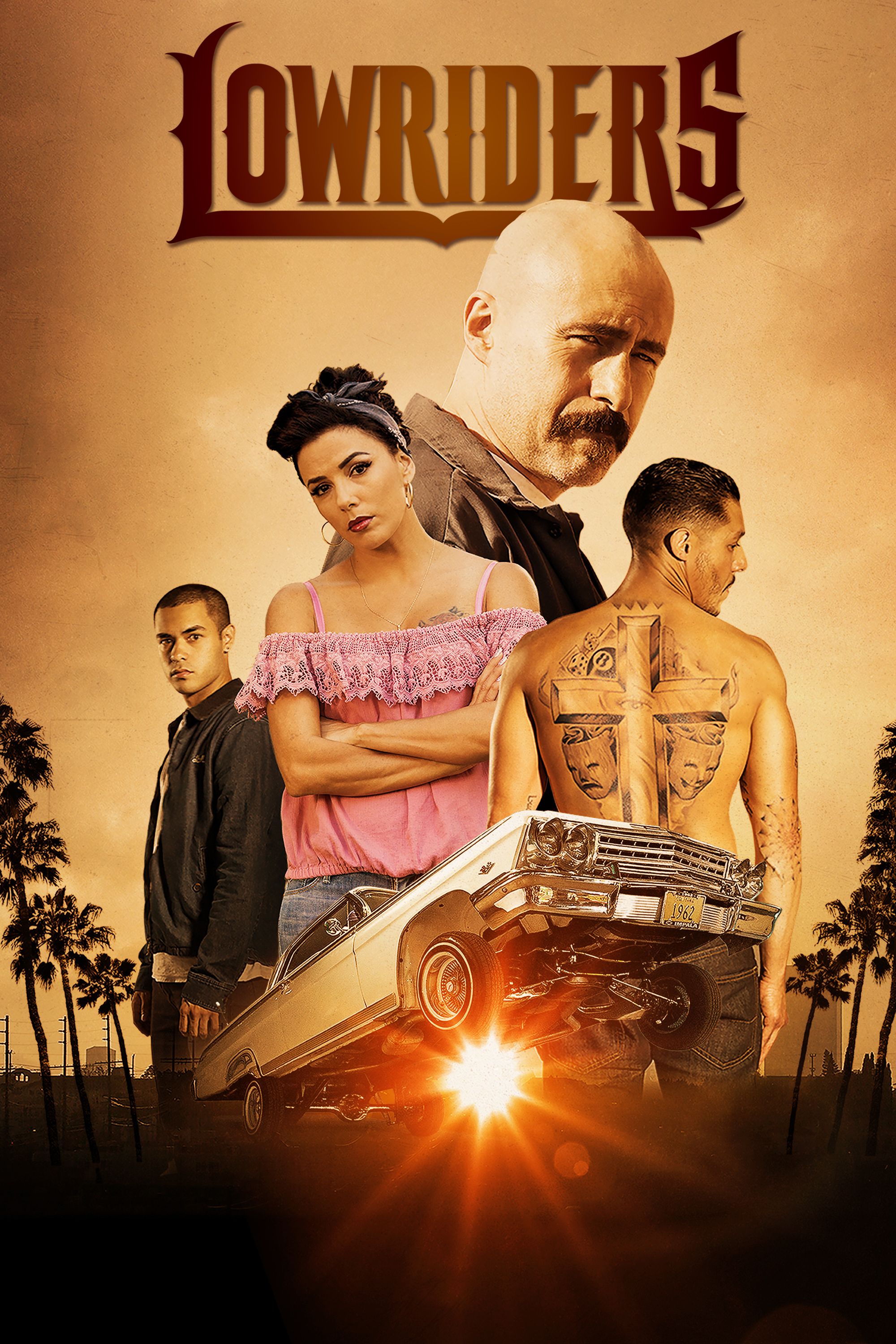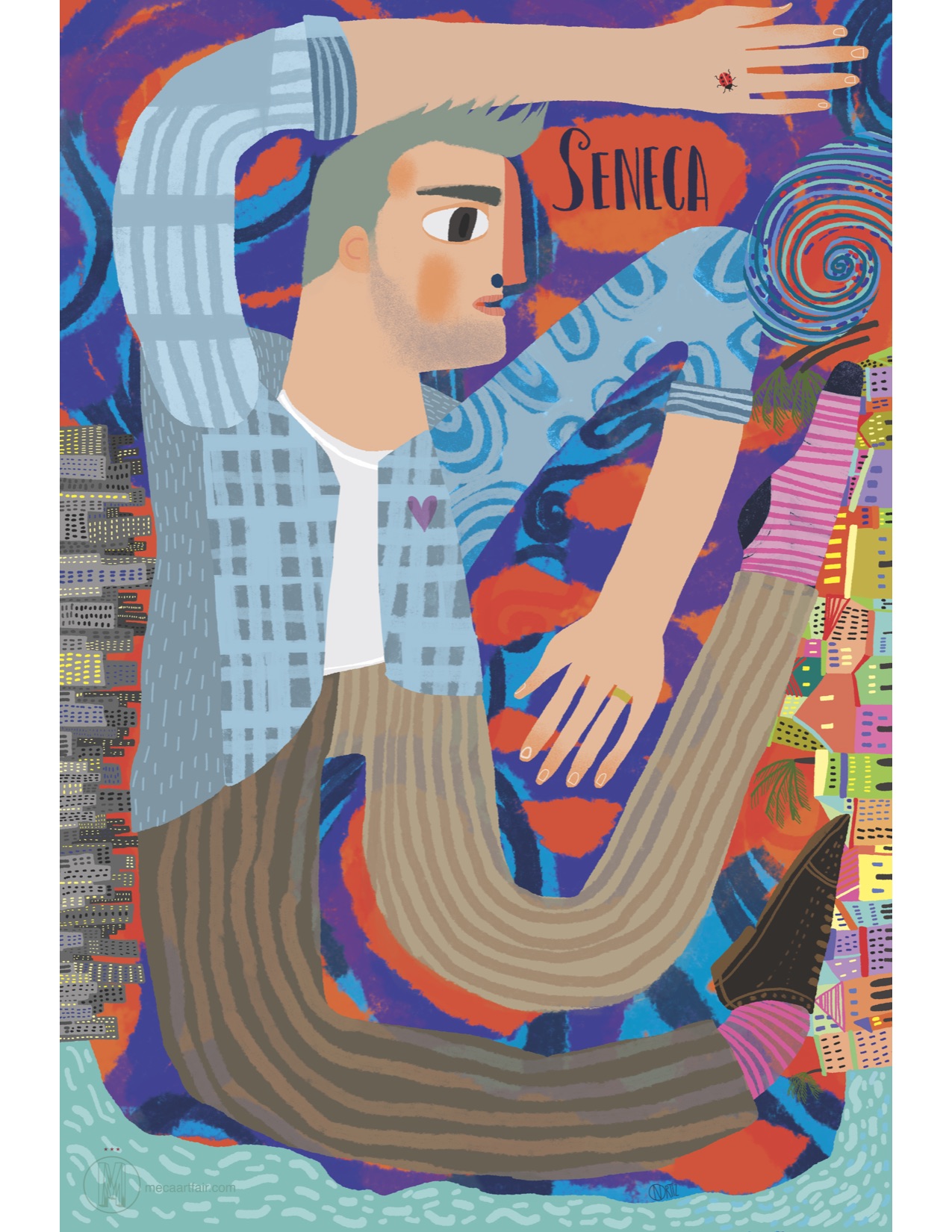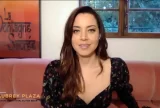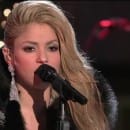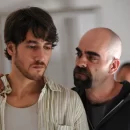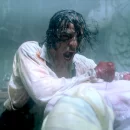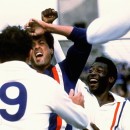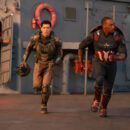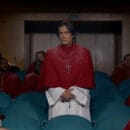Sneak Peak: The Smurfs set visit
07.6.2011 | By Namreta Kumar |

Of all the nostalgia and young memories New York has to offer, for movie goers and movie lovers, Kauffman Studios is probably at the top of their list. No matter what location a movie is filmed at in New York, nothing says filmmaking like Kauffman Astoria Studios. So of course, in true escapist tradition, The Smurfs choose none other than Kauffman to invade as their and our window to the true blue adventure:
On the last day of filming, back in 2010, we were invited to join cast and crew on the sets of The Smurfs. One E train ride later I was standing in the front of historic Kauffman and about to partake on another “underground” journey.
The press trickles into the atrium of the studio and we all begin to wonder at the pictures and pros of past films around us. We are then greeted and escorted through a corridor on the left and upstairs through a set of cubicles, into which we shamelessly peer in for glimpses of what we are about to see and magic of filmmaking. We make it over to open space lined with chairs facing a stool in the front and center of the room.
As we sit idling checking our phones and tape recorders we start to piece together our memories of the Smurfs as we knew them, when we are greeted by the actor who, now, probably knows them best: Neil Patrick Harris (NPH).
Neil Patrick Harris (NPH): “I am done. My work wrapped yesterday. I came here to talk for a bit, watch a little dance.”
Press: Was it all done here, in New York?
NPH: “We were here. HERE, here for most of it. There was a chunk in the middle where we went to FAO Swartz, and Central Park a lot, Prospect Park… but most of it was here.
Press: Are you singing and dancing?
NPH: “None for me.”
Press: Aww…
NPH: “I am very average husband and father.”
Press: How tricky was it dealing with the Green Screen aspect of it?
NPH: “I thought there would be more Green Screen. I thought it was going to be… I was really looking forward to that. I have always really wanted to do one of those things where you stare at the tennis ball as much as much the sticks that chase you around; but this was not that. The technology now, it’s in actual sets. You rehearse it with sort of these gelatinous, like jelly mold, Smurfs that are on stands. So that when you are rehearsing it they set them up in various positions, so you know exactly were they would be, you know the exact height they are supposed to be, and then you rehearse it that way with voice over people. And then they just move them away right before you shoot, and you look at, sort of, were the eyes would be. So no, only Hank [Azaria] really did the Green Screen stuff, because of Smurf Village.
Press: Can you talk about the sensibility of the movie.
NPH: “This is a family movie, but skewed an awful lot towards the core audience of people that watched the Smurfs growing up. They go from happy, happy Smurf Village to Central Park, New York City, so there is a lot of juxtaposition between angry New Yorkers. So you will see them trying to make everyone pleased.

Our conversation digresses there into Neil Patrick Harris’ other projects and then back around to the Smurf Design. For which, we are told to consult with Jordan Kerner (Jordon), and then escorted to another conference room lined with artwork and storyboard. In front of us there is a TV, but the artwork around us takes center stage in our curious minds. After a short wait we are joined by Jordon Kerner, who talks us through the design and the technical aspects of the film.
Jordon: “I apologies we are in the midst of the very last, last scene of the movie. As you guys come down you’ll see, it’s Gargamel’s dream at the end of the movie, he sees himself in his own music video. Glen Boward and Dave Stewart wrote the song. Glen is actually downstairs with us right now. We are recording forty dancers. It’s really cool, so you’ll see it when you come down.”
He then proceeds to direct us through the artwork on the walls, of the East Side apartment, where Clumsy Smurf is first discovered, the Smurf Village, Gargamel’s Castle, Gargamel’s map, and an important* Cavern. Without giving away too much of the movie here, let’s just say that these very detailed and captivating pieces of artwork outline where the story begins to when they are discovered in NYC, and some little gems about Patrick (Neil Patrick Harris) and Grace’s (Jayma Mays) journey to come.
Jordon: “What you see here is what you will see in a moment, Belvedere Castle. We built an exact replica of Belvedere, virtually to scale. It’s scaled in certain ways in length, but not in width because we had a certain amount of limitation on us by the size of the stage. But this very large closet area in Belvedere is a lot of concrete, so it didn’t really look that great when we saw it so we built in it a grate that you’ll see being used when you come downstairs. We did two little inserts that are here on either side. These are usually flat walls in Belvedere, but we have added these in for architectural interest. The reason we did all that, we built this whole set because you have an excellent conservancy in New York. With the park they wouldn’t let us put anything on a tripod and we couldn’t use a dolly, or any of that stuff. We could much further away, and we could get our wide shots but we couldn’t really shoot in this area. So we had to build the castle, because we loved the idea of Gargamel taking over the Belvedere castle.
He then proceeds to explain the procedure and nature of the scene, which we will be viewing shortly. Jordon then introduces to the prop of interest, which I will introduce to again below when we head down towards the set and props. But before we get there we are introduced to some of the animation and “photo-real” CG techniques used to bring The Smurfs and Gargamel to life.

Jordon: “Can we hit the lights?”
When we make down the maze of studio corridors and elevators, we are greeted by props lining the walls and a tall back stage, from the corner of which we can here the scored music video that is currently filming and will air at the end of the film. A small area is set for us to sit between props and watch the AV feed as cuts are recorded and re-shot. It is reel Hollywood in its real setting. Two by two as we were instructed, upstairs, we each get to go behind the curtain and into the staged Belvedere Castle to view what only the Cast and Crew get to otherwise see. And it is the splendor of detailed design, a regulated choreography, and of course the fun of the misstep and the perfect shot.
For some native New Yorker seeing a shoot on location is like taking a morning stroll, but to be in the studio redesigned and refitted to New York is not the same thing. In the large closet within Belvedere Castle, there are multiple monitors set up and an angled view for the crew to keep watchful eye of what gets captured. Outside Belvedere Castle about forty dancers walk in sync to Gargamel’s dreams of capturing the Smurfs. Once your ten minutes of fame are up, we walk back around the curtain and curious eye the props, until the dreamer Gargamel, or Hank Azaria (Hank) arrives:
Hank: “Yeah he’s Gargamel, what else can you say about him. He hates Smurfs and wants to conquer the world. Don’t know what else there is to say. He’s a Virgo. Loves water sports…”
As Hank gets called to set, we engage ourselves, for the last time, with the Smurfalator.
Jordon: “The Smufalator is very important because as a notion Gargamel, when he sang, or when he talked about the Smurfs he often talked about them with the notion of eat, ‘I want to roost them and roost them, I want to eat them, I want to turn them into gold or Smurf soup.’ SO rather than taking that literally, we tried to take it allegorically because Gargamel is a really smart guy even though he isn’t a smart sorcerer. Then if he ate all the Smurfs and boiled them that would be the end of it and his magic would only increase for a moment and they are magical creatures which is why he wants to eat them and get them but it would only last for a limited period of time and the power would be gone. Instead we thought, slightly more deviously, that he is going to harvest them. What that means is that he is going to capture them, he is going to shave papa’s beard, he is going to cut Smurfete’s hair, he’s going to make them sweat and gather the sweat, he is going to make them cry and gather the tears. And you will see how the Smurfalator works with that. There is a conveyer belt and chair goes right in there and the doors close. You can see steam coming out and going into the system makes it into a Frankenstein’s lab.”
A prop’s crewmember showed us the Smurfalator in action, and then walked us through Gargamel’s lab props, while the tail end press invited watched the final scenes of the filming completed. And another E train ride later, the Queens studio seemed to be another young memory of New York movie magic.

